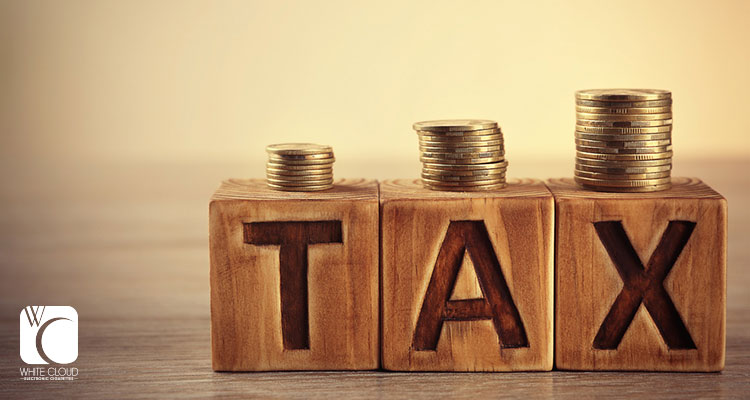Electronic cigarette companies aren’t the only ones cashing in on the rising popularity of vaping. As soon as the e-cig market began to bloom, it was only a matter of time before governments demanded a cut of the profits. While proposed laws for taxing e-cigs have failed in many states, others have been able to impose massive “sin taxes” on vaping. The latest example comes out of Pennsylvania, which just added a 40 percent sales tax to all e-cig purchases.
E-Cig Laws: New Sin Tax Heading for PA

In a rare bipartisan effort, the PA government decided to classify e-cigs and vape accessories as “tobacco products” for tax purposes. Oddly enough, cigars are still not considered tobacco products according to PA tax laws, even though they are indeed made of tobacco while e-cigs contain none. Why? The tobacco industry and lobby in Pennsylvania are much larger than the vaping community, so they are able to influence legislation in their favor. Meanwhile, many vape shops in PA are expected to disappear because they will be unable to afford to make a profit.
Starting in October 2016, on top of paying a 40 percent tax on all future sales, vape shops will be expected to write a check to the government for 40 percent of the wholesale value of their inventory. This initial cost is called a “floor tax,” and that alone has already begun forcing small vape shops to start closing their doors. In addition, all e-cig manufacturers, distributors, and retailers must now apply for a state license to sell in PA, which just means more money must be paid to the government. Supporters of the new law have promised more than $13 million in new tax revenue; ironically, if steep tax bills put companies out of business, then more people will be out of work and therefore need to rely on government support such as unemployment benefits.
The story gets worse: Pennsylvania vapers will not even be able to purchase their favorite e-cigs and e-liquids from other states. Attempting to avoid the 40 percent sales tax by shopping online for e-cigs will be a crime in PA, punishable by a $5,000 fine and possible prison time. Even possessing a vapor product sold outside of PA will be illegal as of October 1st. Online e-cig retailers could face penalties too, so some companies might stop shipping to PA altogether. Combine that with the closing of small vape shops and the state may start to see smoking rates back on the rise.
The Problem with Sin Taxes
A common justification for such “sin taxes” is that they discourage consumers from engaging in unhealthy behaviors; however, high sales taxes have not stopped people from smoking tobacco and drinking alcohol. Ultimately, “sin taxes” are about making money for the government. Because the vaping industry is relatively small, staggering taxes could easily cripple it. Therefore, many ex-smokers who transitioned to e-cigs may fall back into tobacco addiction. Tobacco control experts, and even some public health organizations, across the world have acknowledged that smoking is more destructive than vaping, so there could actually be a negative net result on public health if e-cigs become more difficult to obtain.
Related: Public Health England in Support of E-Cigs for Smoking Cessation
Fighting Back Against Sin Taxes on E-Cigs

Pennsylvania is not the first state to enforce draconian taxes on e-cigs. Minnesota, Kansas, West Virginia, Louisiana and North Carolina have passed similar laws, and other states are trying to do the same. With all of the negative misinformation about e-cigs in the media, laws that restrict e-cigs are going under the radar. Vapers and tobacco-harm-reduction advocates must speak up for themselves. Groups like The Consumer Advocates For Smoke-free Alternatives Association, or CASAA, have resources for vapers on how to take action to oppose unfair regulations.
Wherever you live, call your local house members and senators to let them know how taxing e-cigs could affect you. Bills are easier to defeat than laws are to change, so stay informed about proposed legislation regarding vaping in your area and take action before e-cig “sin taxes” come to your town.






